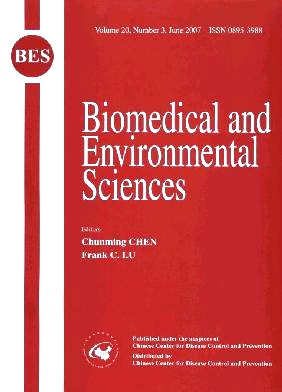Treatment of Scrapie Pathogen 263K With Tetracycline Partially Abolishes Protease-resistant Activity in vitro and Reduces Infectivity in vivo
-
Key words:
- Scrapie /
- Prion /
- Tetracycline /
- Protease-resistant activity /
- Animal experiment
Abstract: Objective To study the possible effect of tetracycline on protease-resistant activity in vitro and infectivity in vivo of a scrapie strain 263K.Methods Scrapie pathogens were incubated with tetracycline at different concentrations for various periods of time and protease-resistant PrP signals were evaluated with proteinase K-treatment and Western blots.The preparations treated with tetracycline were intracerebrally inoculated into golden hamsters and typical TSE manifestations were noted.PrPSc in brain tissues of the infected animals was detected by PrP specific Western blot assays. Results Protease-resistant PrP was significantly reduced in or removed from the preparations treated with tetracycline in a dose-dependant manner.Compared with the control group after incubated for 53.75±0.50 days,the preparations treated with 5 mmol/L and 20 mmol/L tetracycline prolonged the incubation time of 61.5±1.73 and 59.5±0.58 days (P<0.05). Conclusion Treatment of scrapie pathogen 263K with tetracycline reduces or removes its protease-resistant activity in vitro.
| Citation: | YAN-JUN GUO, JUN HAN, HAI-LAN YAO, BAO-YUN ZHANG, JIAN-MEI GAO, JIN ZHANG, XIN-LI XIAO, XIAO-FAN WANG, WEI-QIN ZHAO, DE-XIN WANG, XIAO-PING DONG. Treatment of Scrapie Pathogen 263K With Tetracycline Partially Abolishes Protease-resistant Activity in vitro and Reduces Infectivity in vivo[J]. Biomedical and Environmental Sciences, 2007, 20(3): 198-202. |







 Quick Links
Quick Links
 DownLoad:
DownLoad: